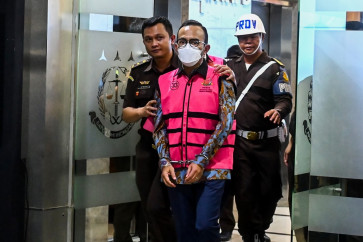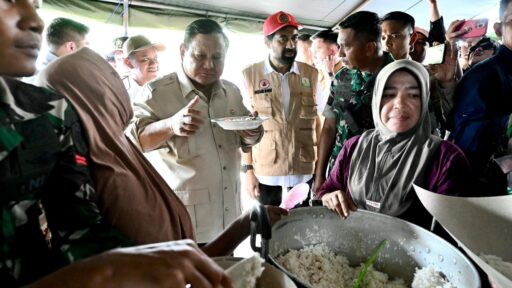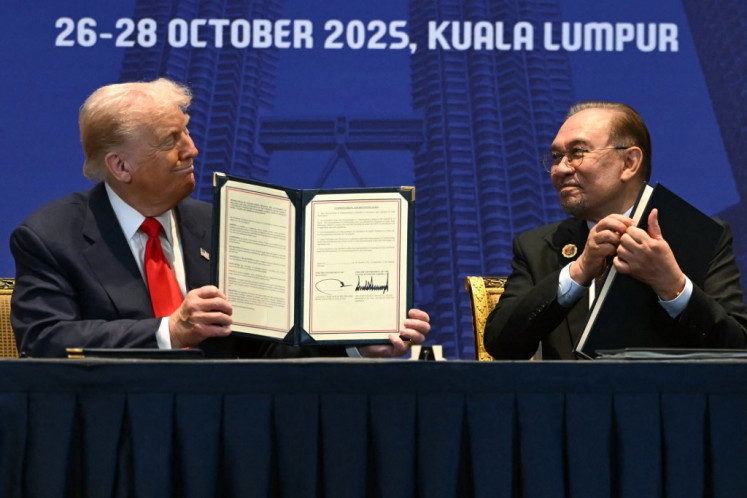Popular Reads
Top Results
Can't find what you're looking for?
View all search resultsPopular Reads
Top Results
Can't find what you're looking for?
View all search resultsASEAN ready for post-2015 blueprint
ASEAN’s foreign ministers welcomed Indonesia’s idea that association should produce a blueprint for a common platform to tackle global issues when it becomes a community in 2015
Change text size
Gift Premium Articles
to Anyone
A
SEAN’s foreign ministers welcomed Indonesia’s idea that association should produce a blueprint for a common platform to tackle global issues when it becomes a community in 2015.
After chairing the meeting, Indonesian Foreign Minister Marty Natalegawa said that although the grouping and individual members were involved in efforts to be a part of solutions to a number of global problems, the policies were scattered.
He said ASEAN needed to further refine, sharpen and consolidate so that over the next few years it had a clear trajectory for an increased and enhanced role in global matters.
“Now, we must visualize the world not of today but rather how the world may look like in say 10 years’ time and to ensure that ASEAN is ready to address that kind of world when the time comes,” Marty told a press briefing.
He said in 2003 Indonesia came up with ideas to tackle ASEAN challenges in 2015 or 2020 by envisioning a blueprint for a community, and that now it was time for the grouping to think ahead of that time so that there was a common platform to tackle future problems.
“Other ASEAN countries did not object to our proposal [during the meeting]. So we will begin working on the blueprint if ASEAN leaders agree on that,” he said.
Indonesia proposed that this year the ASEAN Community should start playing a role on the global stage by tackling global issues such as climate change, development and conflict and security problems under the banner of ASEAN Community in a Global Community of Nations.
Marty has said that ASEAN countries must be outward looking and not self-absorbed, clarifying that a common platform was not a common foreign policy as ASEAN was not a supranational organization.
In regard to handling the inclusion of the United States and Russia in the East Asian Summit (EAS), ASEAN foreign ministries said that the grouping would maintain itself as the driving force in the EAS.
Marty said that ASEAN’s centrality was a must within any regional architecture. “Our focus on EAS will be on geopolitics. We want the EAS to help create a peaceful, stable and secure area. Indonesia always uses common security, common prosperity and common stability to refer to conditions we want to create,” he said.
Analysts warned that Indonesia’s ASEAN chairmanship would be challenged by problems faced by member countries, and that it had been pushed to balance its position between the US and China, both looking to make the region their sphere of influence.
Border disputes among member countries and outsiders, notably China in the South China Sea, will test Indonesia’s leadership. For instance, if it mediated in the South China Sea dispute between China and four ASEAN countries, Indonesia as a non-claimant state to the territory would be expected to show impartiality.
China has been at loggerheads with Vietnam, the Philippines, Malaysia and Brunei over the control of the Spratly and Paracel Islands in the South China Sea for decades.
Some observers feel the administration of US President Barack Obama is exploiting these tensions to undermine China’s growing regional influence.










